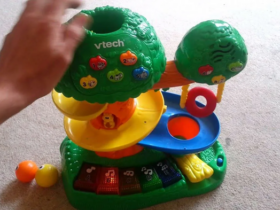Renting your first apartment is an exciting milestone, but it can also be overwhelming if you’re not prepared. From finding a place within your budget to ensuring you understand all the fine print in your lease agreement, the process involves many steps. Without the proper preparation, first-time renters can quickly become frustrated or even make costly mistakes.
This comprehensive guide covers tips for first-time apartment renters, offering insights on everything from budgeting and credit checks to touring apartments and signing the lease. Whether you’re moving to a new city or just taking that next big step in life, these tips will help make your apartment search and move-in process smoother, ensuring you make the most informed decisions possible.
Know Your Budget and Stick to It
The very first tip for first-time apartment renters is to know your budget before you begin your search. The general rule is to spend no more than 30% of your monthly income on rent. But that’s just the beginning. You also need to factor in utilities, parking, renter’s insurance, and other hidden costs, such as Wi-Fi.
Using tools like rent calculators can help you break down costs and prevent you from overspending. Additionally, if you’re moving to a new city, researching the average cost of living there will give you a better sense of what to expect. Starting your search with a clear budget in mind will keep you from wasting time on apartments that are out of your price range and will help you focus on what’s affordable.
Before finalizing your budget, consider using an online text editor to organize and track your expenses. This way, you can clearly see your potential costs and stay on top of your financial planning.
Checking Your Credit and Preparing Documentation
Most landlords perform a credit check before approving a rental application. A good credit score (670 or above) shows you pay your bills on time, which is crucial for getting approved. If your score is lower, you may need to pay a higher deposit or have a co-signer.
To improve your chances of approval, check your credit score in advance and resolve any errors or outstanding debts. Additionally, preparing the necessary documents, such as proof of income, ID, and rental references, will help streamline the application process. Being prepared will give you an edge over other renters.
Documents to Gather:
- Government-issued ID
- Proof of income (pay stubs, W-2s, etc.)
- Credit report (if required)
- Rental references or contact info from past landlords
Also, to assess your eligibility and ensure you’re on track with your finances, consider taking a words per minute test to get an understanding of your time management. This can help you efficiently organize and complete your rental application process on time.
Create a List of Must-Haves vs. Deal Breakers
To save time and focus on the right options, it’s essential to make a list of must-haves and deal breakers before you start searching.
- Must-Haves: These are non-negotiable features. Do you need a pet-friendly apartment? A place with in-unit laundry? Parking?
- Deal Breakers: Factors that would make you walk away from a potential rental. Maybe you need to be close to public transport, or perhaps you can’t stand noisy neighbors.
Separating the two will help you avoid distractions from listings that don’t meet your core needs and narrow your search to apartments that are a good fit. Having a clear understanding of these priorities will keep your search efficient and help you stay focused on finding the perfect place.
Start Your Search Early and Use Multiple Platforms
Finding the perfect apartment often takes time, especially in competitive rental markets. Starting your search 30–60 days in advance will give you more options and prevent the stress of last-minute decisions.
Peak rental seasons (spring and summer) tend to have more listings, but they also come with higher demand. If you’re searching during a slower period, you may be able to negotiate better rates. Be sure to use multiple platforms, such as Redfin Rentals, Rent.com, and Facebook groups, to cast a wider net. Don’t forget to physically visit neighborhoods you’re interested in, as some landlords may only post listings locally.
Tour the Apartment and Ask Key Questions
Never sign a lease without touring the unit, either in person or virtually. During your tour, inspect the apartment for any issues, such as mold, water damage, or faulty appliances. Look for potential maintenance issues and ask the landlord about the building’s maintenance policies.
Questions to Ask During Your Tour:
- Are utilities included in the rent?
- What’s the average monthly utility cost?
- What is the policy for repairs or emergencies?
- Are there any move-in or admin fees?
- What’s the guest policy and parking situation?
These questions will give you a clearer picture of the apartment’s actual cost and help you avoid hidden surprises.
Conclusion
Renting your first apartment is an exciting step toward independence, but it’s essential to approach the process with preparation and care. By following the tips for first-time apartment renters outlined in this guide, you can confidently navigate the apartment search, ensure you find the right place, and avoid costly mistakes. Whether it’s creating a budget, checking your credit, or asking the right questions during a tour, each of these steps will help make your renting experience smoother and more successful.
Remember, don’t rush—take your time to find the right apartment, understand all the fine print, and create a comfortable living space. Happy renting!
FAQ’s
How can I determine how much rent I can afford?
A general rule is to spend no more than 30% of your gross monthly income on rent. Don’t forget to factor in utilities and other expenses.
What should I look for when touring an apartment?
Check for potential maintenance issues, ensure appliances are working, and ask questions about rent, fees, and policies. Always inspect the apartment in person or virtually.
Do I need renters’ insurance?
While not always required, renters’ insurance is a smart move. It protects your belongings from fire, theft, or water damage and is typically very affordable.
Can I negotiate rent as a first-time renter?
While rent prices can be set, you can negotiate specific lease terms, such as a longer lease at a reduced rent or additional amenities included.
What are common mistakes first-time apartment renters make?
Common mistakes include failing to budget for all expenses, not reading the lease carefully, or not checking one’s credit score in advance. Make sure you’re prepared for every step!











Leave a Reply